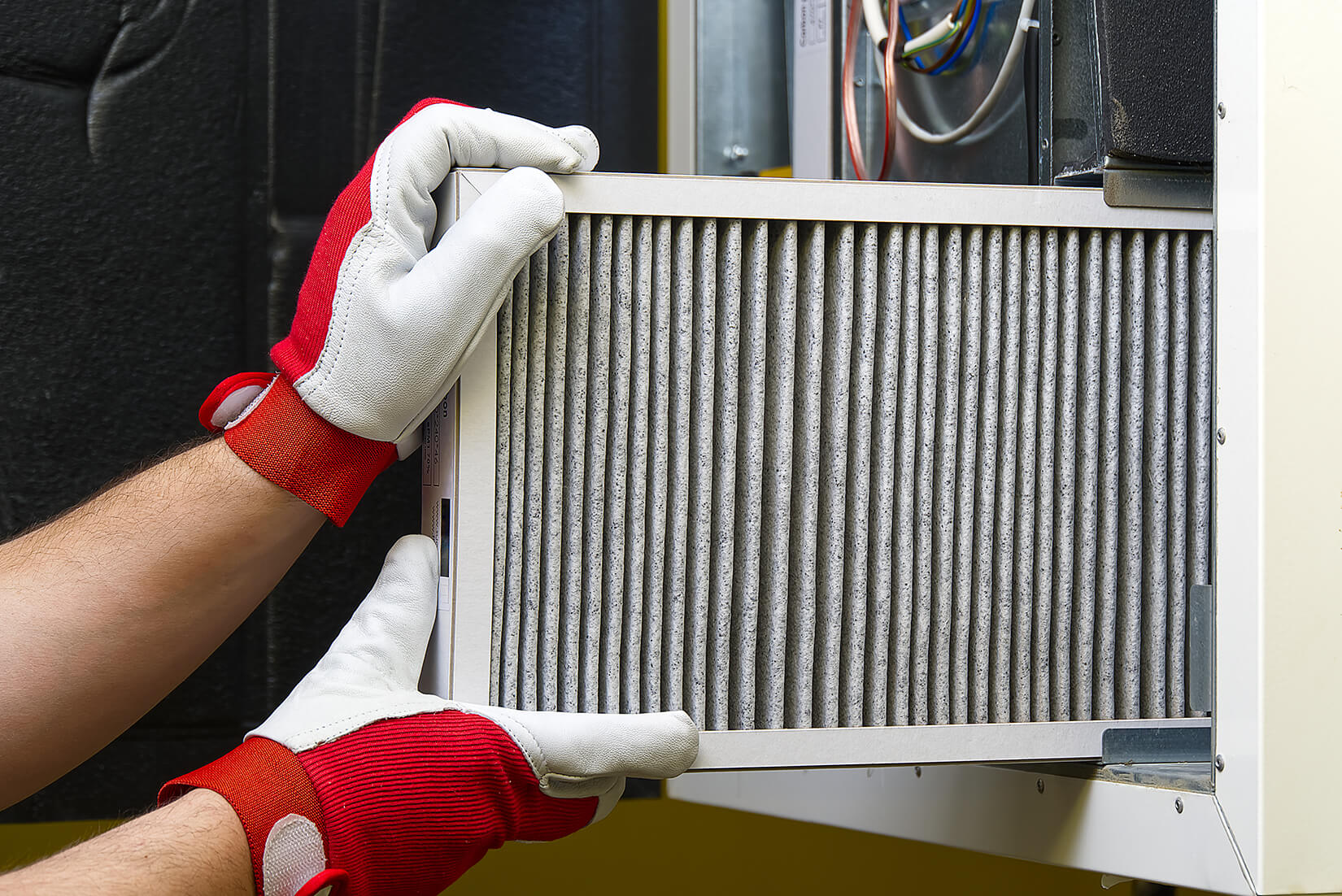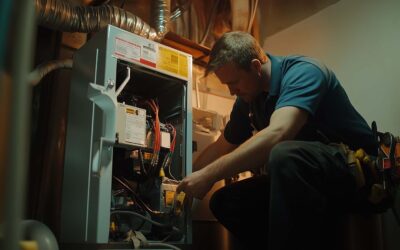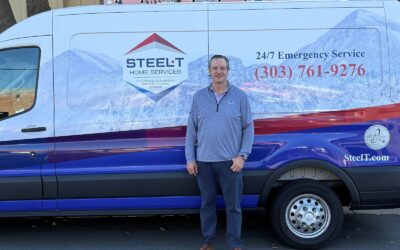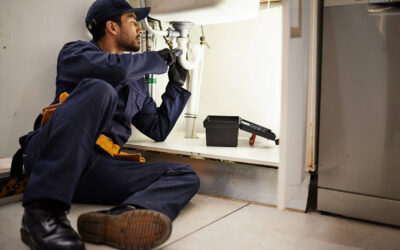When it comes to indoor comfort, most homeowners think about temperature first, cranking up the heat in winter or running the AC full blast in summer. But what about the quality of the air you’re breathing? Even with a top-notch HVAC system, your home’s air quality depends heavily on the strength and effectiveness of your air filtration system.
Over time, filters clog, systems age, and pollutants accumulate, leading to stale, dusty, or even unhealthy air. If you’ve noticed lingering odors, frequent allergies, or an increase in dust, it may be time to upgrade your air filtration system. Here are the top five signs that your home could benefit from air filtering with Steel T Home Services.
1. You’re Dusting Constantly (and It Still Comes Back)
If you feel like you’re dusting every few days only for the dust to reappear, your air filtration system might not be doing its job effectively. A quality air filter should trap dust, pet dander, and debris before they have a chance to circulate throughout your home.
Why it happens:
Older or low-efficiency filters, especially standard fiberglass models, only capture large particles. Smaller pollutants, like fine dust or pollen, slip through and recirculate in the air. Denver’s dry climate can make the problem worse, as static and airflow can easily lift fine dust from floors, furniture, and vents.
What to do:
Upgrading to a high-efficiency pleated filter or a HEPA filtration system can dramatically improve air cleanliness. These filters can capture up to 99.97% of airborne particles as small as 0.3 microns, significantly reducing the amount of dust that settles in your home.
2. Allergy and Asthma Symptoms Are Getting Worse
If you or your family are suddenly experiencing more sneezing, coughing, or itchy eyes indoors, your air filter might be to blame. Airborne allergens like pollen, mold spores, and pet dander can accumulate when filters become clogged or outdated.
Why it matters:
Denver’s high pollen counts in spring and fall, combined with indoor irritants like pet hair or smoke, can overwhelm older systems. When filters can’t keep up, allergens continue to circulate, aggravating respiratory conditions and triggering asthma attacks.
What to do:
Consider an HVAC-integrated air purifier or a whole-home filtration system. These systems work with your existing HVAC setup to remove contaminants from the air before it enters your living spaces. For allergy sufferers, this can make a noticeable difference in breathing comfort and sleep quality.
3. Lingering Odors and Stale Air
Does your home smell musty, smoky, or just “off” no matter how often you clean? That’s a classic sign that your air filtration system isn’t effectively removing airborne particles. Odors from cooking, pets, and cleaning products can linger if your system can’t filter out volatile organic compounds (VOCs) and other microscopic pollutants.
Why it happens:
Standard air filters are not designed to neutralize odors or chemical vapors. Over time, these particles can build up inside ducts and recirculate throughout your home.
What to do:
Upgrading to a filtration system with activated carbon filters or ionization technology can make a big difference. These systems don’t just trap particles. They help neutralize odors and VOCs, leaving your home smelling fresher and cleaner.
4. Uneven Airflow or Higher Energy Bills
If some rooms feel stuffy while others are comfortable, or if your energy bills keep climbing, your filtration system could be restricting airflow. When air filters become clogged with debris, your HVAC system has to work harder to push air through the ducts. This not only wastes energy but also puts unnecessary strain on your furnace and air conditioner.
Why it matters:
Restricted airflow forces your HVAC system to run longer cycles, increasing energy usage and wear on components. Over time, this can lead to premature breakdowns and costly repairs.
What to do:
Start by replacing your filters regularly, every 1 to 3 months, depending on usage and filter type. If you’ve been diligent about replacement and still have airflow issues, your system may benefit from an upgrade to a high-efficiency filtration system designed to maximize both air quality and energy efficiency.
5. Visible Mold or Excess Humidity
Seeing condensation on windows or mold near vents? That’s a red flag that your air filtration and ventilation system are not working together properly. In Denver’s semi-arid climate, humidity usually isn’t a year-round issue, but in tightly sealed homes, poor ventilation can create the perfect environment for mold growth.
Why it happens:
Moisture buildup often results from inadequate airflow and insufficient filtration. Dust and spores trapped inside ductwork can accumulate, creating a breeding ground for mold and mildew.
What to do:
Install a whole-home air purifier with humidity control or pair your HVAC system with a dehumidifier. Regular duct cleaning and filter upgrades can also prevent moisture and organic buildup, improving both air quality and system efficiency.
Bonus Sign: You’re Still Using Basic Fiberglass Filters
If your home relies on the cheapest fiberglass filters available, you’re missing out on the protection modern filtration systems can offer. While they’re inexpensive, these filters only trap the largest airborne particles, meaning most dust, allergens, and contaminants still circulate through your HVAC system and into your air.
Upgrade Tip:
Opt for filters rated MERV 8–13 (Minimum Efficiency Reporting Value). These filters balance airflow and filtration, capturing smaller particles without overworking your system. For homes with allergy sufferers, a MERV 13 filter or HEPA-grade system is often the best choice.
The Benefits of Upgrading Your Air Filtration System
Investing in an air filtration upgrade isn’t just about cleaner air—it’s about a healthier, more efficient home. Here’s what you can expect when you make the switch:
- Better Health: Fewer allergens and pollutants mean fewer respiratory issues.
- Enhanced Comfort: Cleaner air smells fresher and feels lighter.
- Longer HVAC Lifespan: Reduced buildup helps prevent costly repairs.
- Improved Energy Efficiency: Clean filters improve airflow and reduce energy waste.
- Peace of Mind: You’ll breathe easier knowing your home’s air is safe and clean.
How Often Should You Replace Your Filters?
Filter replacement frequency depends on your system type, household size, and lifestyle. As a general guideline:
- Every 30–45 days: Basic fiberglass filters
- Every 60–90 days: Pleated filters
- Every 6–12 months: High-efficiency or HEPA filters
Homes with pets, smokers, or residents with allergies may need more frequent replacements.
Breathe Better with a Filtration Upgrade
Your HVAC system does more than control temperature. It plays a vital role in the health of your indoor air. If you’ve noticed dust buildup, musty smells, or worsening allergies, it’s time to consider upgrading your air filtration system.
For homeowners in the Denver Metro area, Steel T Home Services offers expert air quality assessments and professional installation of advanced filtration and purification systems. From whole-home purifiers to high-efficiency filters, we’ll help you find the right solution for cleaner, fresher air all year round. Contact Steel T Home Services today to schedule your air quality consultation and take the first step toward a healthier, more comfortable home.
Steel T Home Services is Denver's choice for HVAC, plumbing & electrical needs. With over 40 years of experience in serving our valued customers’ needs, Steel T is committed to providing unparalleled comfort to your home.



